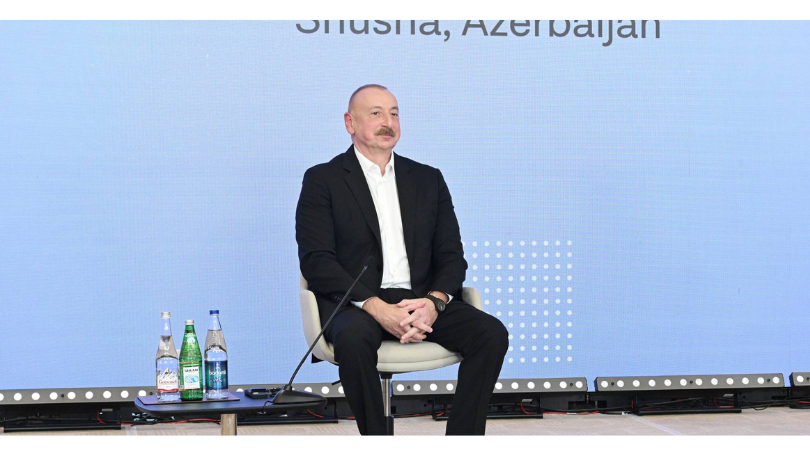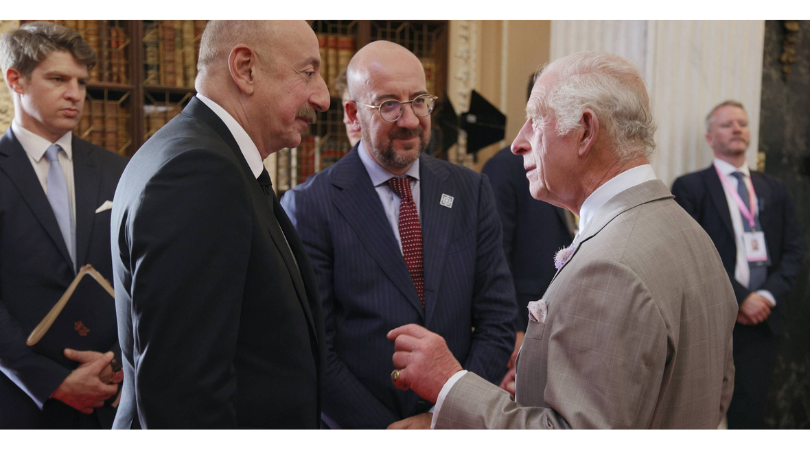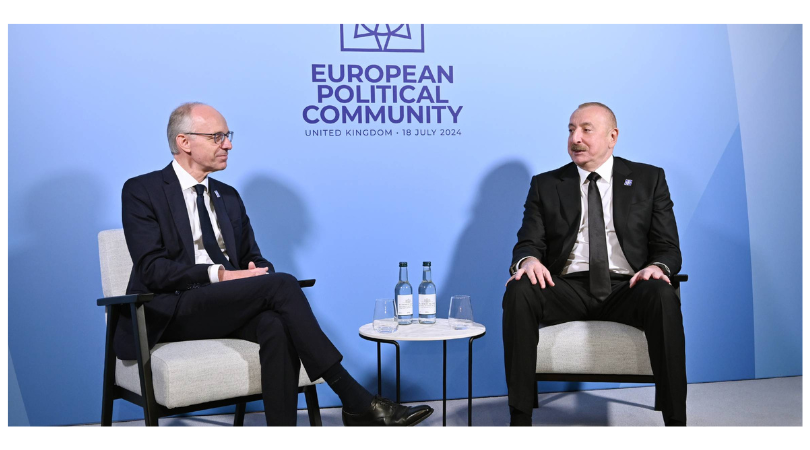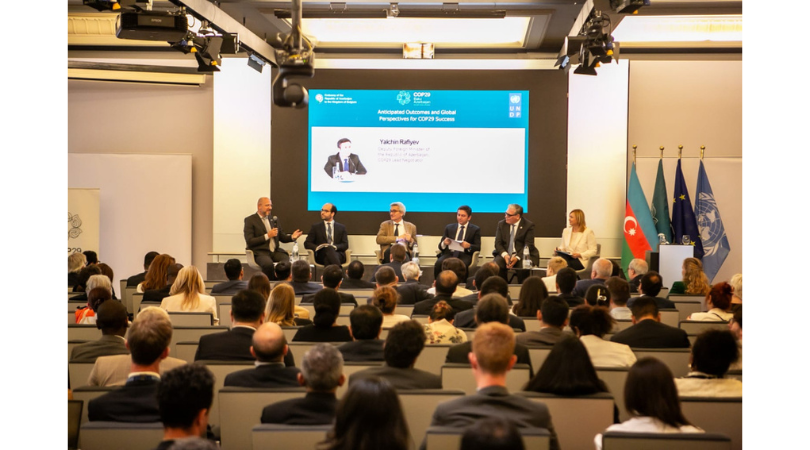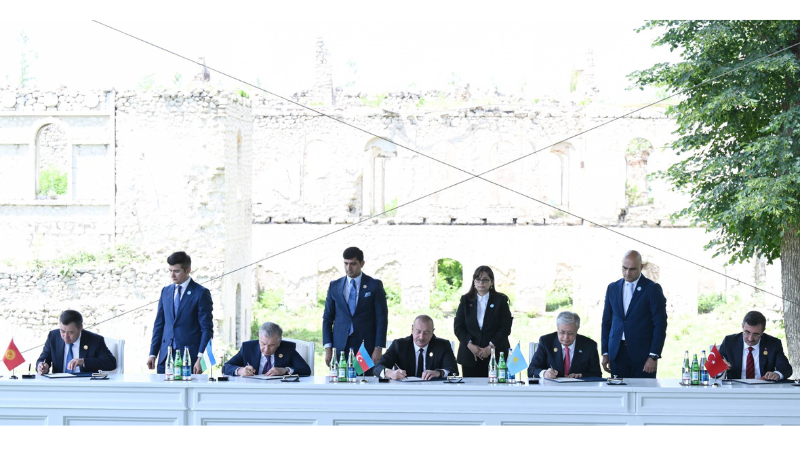Statement by Minister Elmar Mammadyarov at the Foreign Minister’s meeting of the EU Member States and Eastern Partnership countries
Brussels, 22 July 2014
High Representative Ashton,
Commissioner Füle,
Distinguished colleagues,
Ladies and gentlemen,
It is a great pleasure to address the annual ministerial meeting which gives us an opportunity to take stock of post-Vilnius developments and have an exchange of views on the future of our engagement.
The Vilnius Summit set out ambitious goals in fostering bilateral and multilateral tracks of cooperation. We believe that the bilateral track of Partner states’ cooperation with EU can provide most opportunities for enhancing the dialogue with EU based on aspirations of individual states. Availing itself of the Eastern Partnership tools, Azerbaijan has been successful in strengthening cooperation with EU based on my country’s development agenda and priorities.
As an active contributor to the implementation of Vilnius Summit Declaration, Azerbaijan made considerable efforts to bring in more of the EU best practices and standards. We acknowledged the mobility of our citizens in a well-managed and secure environment as an important element of the Eastern Partnership and, therefore, we signed Mobility Partnership, Visa Facilitation and Readmission Agreements. The last two agreements due to enter into force in the coming months will promote business and cultural contacts between our citizens, as well as help efficiently address migration issues.
Another remarkable development in our Euro-integration process has been the signature of the Protocol on Azerbaijan’s participation in EU programs, which was inked during the June visit of Mr. Jose Manuel Barrosso, President of the European Commission, to Azerbaijan. This framework document will give Azerbaijani institutions and citizens a greater access to EU programs ranging from education and research to culture, arts and science. We look forward to increasing cooperation between Azerbaijani institutions and relevant EU agencies in capacity building and promoting exchange of expertise in key domains.
Let me also mention that one of the priority activities of Azerbaijan’s current chairmanship of the Committee of Ministers of the Council of Europe is about to foster co-operation and synergy between the three key pillars of the CoE and other international organizations such as the European Union. Using this opportunity, I would like to stress that the Azerbaijan’s Chairmanship encourages all EU member and Eastern Partner countries to actively support and to constructively contribute to a number of activities to be organized with aim at strengthening that cooperation. While addressing the challenges that Europe is currently facing, Azerbaijan is ready to coordinate its efforts with other international actors, especially with the European Union during the whole period of its chairmanship.
At the Vienna Ministerial Session in May 2014, where we assumed the chairmanship, the Ministers of the member-states of the Council of Europe examined a report on co-operation with EU and expressed their satisfaction regarding the development of such co-operation. Let me assure you that our Chairmanship will seek to further strengthen this co-operation in all cross-cutting areas.
In that regard, please be informed that we are planning to host a high-level Ministerial Conference on the neighborhood policy of the Council of Europe in Baku in November 2014. As a country located at the crossroads of two continents, which enjoys strong historical relations with European and Asian countries, Azerbaijan intends to support Europe’s endeavours to ensure more secure and prosperous neighbourhood. The Conference will provide a valuable forum for exploring the avenues for a long-term engagement with the countries covered by the neighbourhood policy through strengthened political dialogue.
Another important event that the Azerbaijani chairmanship intends to organise within the EU – Council of Europe cooperation is the celebration event of the European Heritage Days, which is the joint action of the Council of Europe and the European Commission. The event scheduled for early October in Baku is meant to give additional impetus to the objectives of the Heritage Days and raise further awareness of the need and importance to protect cultural heritage.
Ladies and gentlemen,
While culture and cultural diversity are the best exports that Azerbaijan has, we are keen to work in other tangible and strategic dimensions. In that regard, the ongoing development towards the opening of the Southern Gas Corridor, including the expansion of the South Caucasus Pipeline, construction of TANAP and Trans-Adriatic Pipeline, has been Azerbaijan’s major contribution to fulfilling the objectives of the Vilnius Declaration. Azerbaijan has proved to be a reliable strategic partner of EU in the field of energy. These projects with estimated total investment of more than EUR 45 billion will help ensure European energy security by committing sizable, reliable, and alternative gas volumes at competitive prices to meet the demand of a European consumer. In this regard, a stepped-up support of our European partners would play a critical role in a timely completion of the construction of the afore-mentioned pipelines. Azerbaijan also continues its efforts on developing potential gas transport infrastructure directly linking the Caspian region with the EU.
Azerbaijan is interested to widen the scope of strategic partnership with EU to other fields of common interest. Trade could be a major field we could focus on, given the fact that Azerbaijan is EU’s biggest trade partner in the South Caucasus. Although the composition of our exports to EU is mostly made up of oil and oil products, we strive for the diversification of tradable goods. Bringing the standards of non-oil products into compliance with EU requirements is important with a view to facilitating their access to EU market.
Mentioning trade, I would like to express our concern on some disappointing facts regarding distorted trade practices, which we discovered in the past. It came to our attention that goods produced by Armenia in the Nagorno-Karabakh region and other occupied territories of the Republic of Azerbaijan have been allowed to enter the EU market under various fraudulent labels in contradiction to the rules of origin and the commitments undertaken by Armenia in the World Trade Organization agreements. This is a clear case of violation by Armenia of its WTO obligations. When acceding to WTO, Armenia reaffirmed that the terms and conditions of its WTO membership, as well as the obligations of the Republic of Armenia under the WTO Agreements and the provisions of those Agreements, should only apply to the territory of the Republic of Armenia as recognized by the United Nations. Therefore, recalling the recent regulatory legal framework adopted in respect to other similar cases in Eastern Partnership region, we call upon our European partners to undertake all measures to prevent such distortive steps by the Armenian side.
Excellencies,
In the run-up to the Riga Summit, we need to elaborate on how we see the future of our cooperation. This is also important in terms of increasing the synergy between multilateral and bilateral tracks of cooperation within the Eastern Partnership.
Stability and prosperity on the European continent are major preconditions for closer cooperation. While favouring the bilateral format of cooperation with EU, since the inception of Eastern Partnership Azerbaijan has been engaged in the multilateral format. However, the ongoing occupation of the territories of the Republic of Azerbaijan, including the Nagorno Karabakh and seven adjacent regions by the Republic of Armenia, makes impossible to fully benefit from the multilateral framework of Eastern Partnership.
The Republic of Armenia, which exercises overall effective control over the occupied territories of the Republic of Azerbaijan attempts to consolidate the current status quo and impose a fait accompli practices through sustaining the illegal economic activities in these territories. The fraudulent trade exercise, which I mentioned above, is just one of the cases. Armenia should not enjoy the preferential treatment of the EU when it comes to imposing sanctions and other restrictive measures vis-à-vis those activities.
Ladies and gentleman,
We believe that the bilateral track should remain a priority in our dialogue with EU. There is differentiation, there is uniqueness, and own pace of development and reform agenda of each of the Eastern Partner state – this approach must be preserved.
We all should also recognize that Eastern partners should not feel any pressure to choose their level of cooperation with EU. Instead, an incentive-based approach should be vested in the differentiation mechanism itself. Mutual accountability will allow both sides to ensure a better inter-linkage among needs, aspirations and capacity of individual partners.
As far as the future of EU-Azerbaijan relations concerned, I would like to reaffirm our readiness to work on a legally binding document of strategic nature which will be based on mutual interest and shared priorities.
Speaking about the upcoming future, I would like to inform you that Azerbaijan will be glad to host the next informal meeting of the Ministers of Foreign Affairs and Ministers of Energy of the Eastern Partnership in Baku on 8-9 September of this year.
Thank you.

